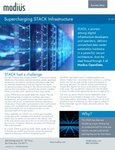With the volume of worldwide data expected to reach 175 zettabytes by 2025, and multi-million dollar penalties for data and information breaches, knowing how to properly manage and protect your records and data is imperative.
Below are five key implications for a business’s information lifecycle management framework addressing collection, usage, storage, and safe disposal.
Hybrid working necessitates re-invention of information access and management policies/procedures
Flexible work locations create an inherent information leakage and data security risk, and the boom in collaborative tools, applications, and video-conferencing software adds to the volume of data generated alongside existing physical and digital records. As such, the number of stakeholders in charge of this field has multiplied, and they must:
- Operate from one information security framework that ensures compliance, protection, and interoperability.
- Understand how to collaborate within the constantly changing confines of a hybrid working model.
- Take a risk management first approach to all processes.
- Be aware of potential breakdowns in handling data to prevent breaches and failures.
Additionally, all employees must be educated and engaged in proper data management processes.
Focus data remediation initiatives on ESG and privacy regulations
Data remediation initiatives emphasizing ESG and privacy laws are crucial to respond to new legislation and demonstrating information resiliency.
To ensure compliance, businesses must be careful about the data types they collect. Storing data without consent or for legitimate business purposes can raise GDPR compliance issues. Furthermore, data remediation can help improve compliance by ridding duplicate, unnecessary, or unused data.
Data residency will take center stage with the continued acceleration of cloud & AI in the hybrid workplace
Given hybrid workplace demands, cloud-based services are increasing – but tracking information in a multi-cloud environment can be difficult. Knowledge around data residency is critical to data security and privacy.
Most businesses operate under local data regulations that dictate how user data must be collected, cleaned, processed, and stored. It’s worth noting companies can transfer data after complying with local data protection and privacy laws. In this scenario, businesses must notify users and get consent before obtaining and using their information.
AI can aggregate, analyze, present data clearly, and extract relevant information, so businesses can make the right decisions around data sovereignty. Subsequently, AI can be applied for content search and redaction, better integrate systems, and overcome silos. From an information lifecycle viewpoint, AI can identify and delete unnecessary data to support compliance and governance.
Continued focus on data quality and stewardship
The role of the ‘data steward’ or ‘data broker’ as a prime participant in technology and business initiatives is also taking center stage. This concerted effort to increase the awareness and prioritization of data handling principles and standards within the organization is a welcome development following years of data breaches resulting in reputational damage and falling customer trust.
This increased focus on data value and quality is leading to increased vigilance to ensure data sets are accurate, valid, complete, and current, with AI being used to detect incomplete, inconsistent, or outdated data. Data minimization efforts like these can lead to cost savings when obsolete data is no longer stored.
Don’t ignore physical information assets in modern ‘phy-gital’ office space
With an increased focus on the circular economy and meeting carbon-neutral pledges, choosing an Asset Lifecycle Management (ALM) partner is crucial to ensuring disposal of old IT assets and 'phy-gital' records is completed with data security and compliance in mind.
Understanding what records, assets, and information your organization has and what needs to be digitized or automated is essential for the modern office environment.
Ultimately, if organizations don’t develop processes, assign dedicated functional ownership, and invest in technology, they will struggle to ensure compliance, value recovery, and security of their information assets.





